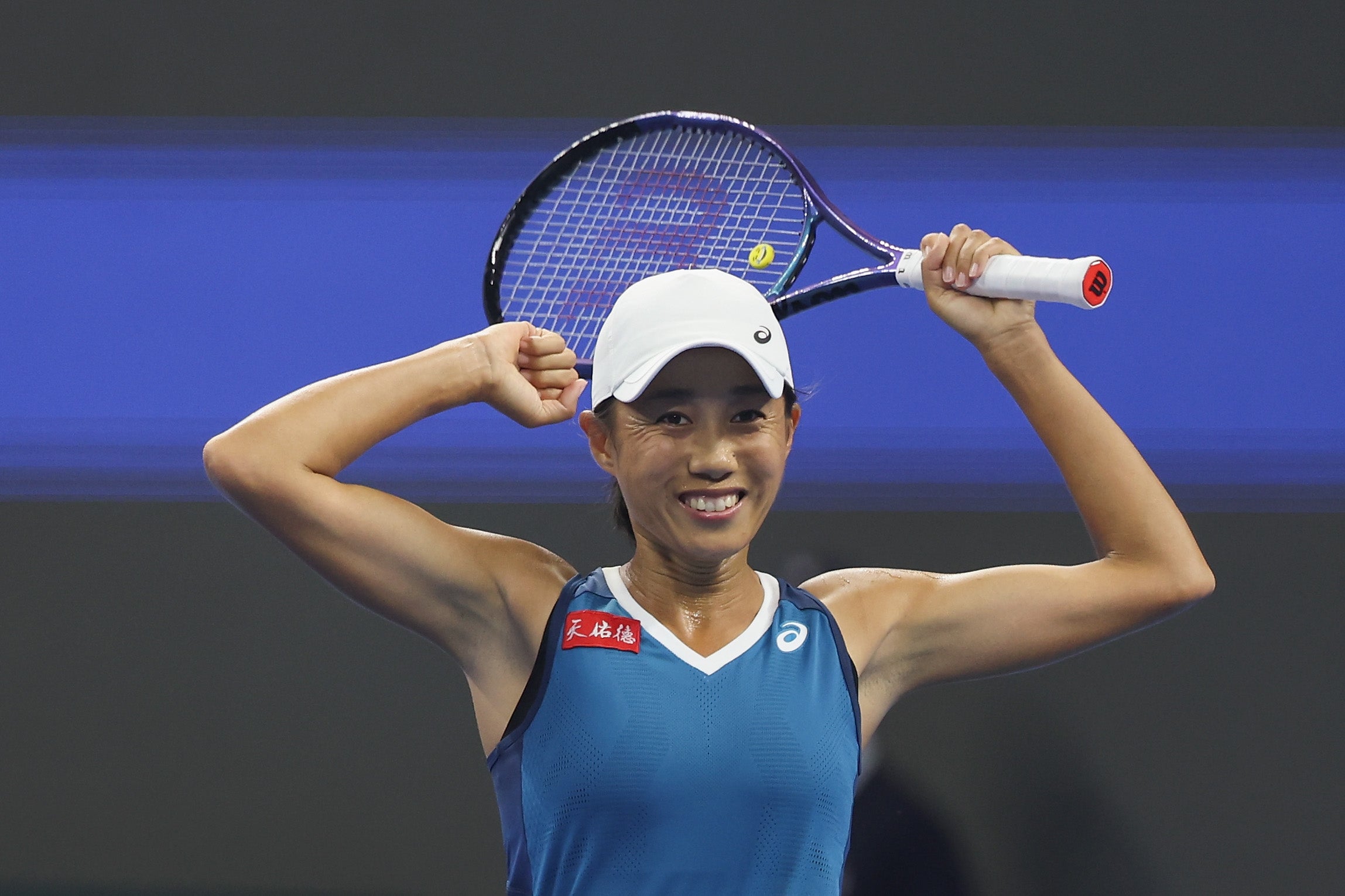As Zhang Shuai arrived in Beijing for the China Open, the 35-year-old found that any reference of her name was beginning to be followed by someone called Madeleine Pegel. Unfortunately for Zhang, that was not good news: there is very little trace of Madeleine Pegel’s tennis career, other than the unwanted piece of tennis history that she has carried around for the past 52 years, that of the longest losing streak ever recorded in the WTA. According to the Tour, Pegel lost her first 29 matches in a row between 1968 and 1972. And not until Zhang’s dire run of form had anyone come close to that.
Zhang is from the city Tianjin, which is near enough to Beijing for her to consider the China Open a home tournament. A former World No 22 in singles and World No 2 in doubles, where she is also a two-time grand slam champion, Zhang received a wildcard for the China Open despite her ranking falling to 595th following a series of injuries and a six-month break from the sport. Her ranking, though, was not as much of a burden as her 24 straight losses in singles, a run that stretched back 603 days to January 2023 and was the longest since Pegel’s infamous streak a generation ago.
But one week later everything has changed and something incredible is unfolding in Beijing: not only has Zhang snapped her losing streak, ending her run of first-round defeats by beating McCartney Kessler 7-6 7-6 on Wednesday, but the 35-year-old has gone on to record three more wins. Zhang’s long-awaited victory was followed by a historic result against the US Open semi-finalist and World No 8 Emma Navarro, becoming the lowest-ranked player to beat a top-10 opponent in the tournament’s history. She then rolled past Greet Minnen and Magdalena Frech to reach the quarter-finals.
Zhang feels transformed. She has still not dropped a set, and can’t stop winning: “When I am on the court I feel like Rafael Nadal on Court Philippe-Chatrier,” she said after beating Minnen on Sunday. “When you’re losing, maybe everybody wants to play against you. Now nobody wants to play against you.” That included the No 23 seed Frech, who was in-form and had won her last seven matches ina row to win the WTA Guadalajara tournament two weeks ago.

Zhang’s dramatic change in fortune has not gone unnoticed among her fellow players. Heather Watson once described Zhang as “one of the nicest players on tour”. Her former doubles partner Coco Gauff said Zhang “deserves everything” and told the WTA: “It was tough to see her going through the streak. But honestly, through it all you would have never noticed she was going through that. I’ve seen her literally five minutes after matches and she would still say hi to me and be so excited to see me, which, I’m not like that after I lose.”
And undoubtedly that mindset was required when Zhang was in the midst of her losing streak. She put some of it down to bad luck, having drawn a series of difficult opponents in the first round of grand slams, but as the defeats piled up and Zhang struggled with injuries she decided to take a six-month break from the sport after Montreal last August. Zhang returned in February but the losses continued. When the Tour came back round to China, Zhang believed she needed a result more than ever. “I thought I have to challenge myself, but I am not young anymore,” she said. “I don’t have so many chances. I don’t have that many tournaments. I need a little bit better draw. I need at least one more win in my life.”
Instead, when Zhang faces Paula Badosa in the quarter-finals on Wednesday, it’s not about looking back, but facing forward.
“Just one week, after one match, it’s totally different.”













